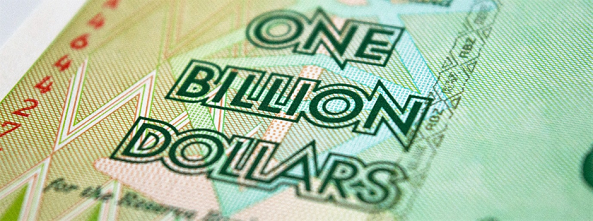The average annual value of unpaid volunteer hours to an incorporated sport club is estimated to be $125,000^. With over 7,500 community sport clubs in New Zealand, the total unpaid value of sport delivery through clubs to local communities is estimated to be over $1 billion per annum. Given recent research* reveals that around 20% of volunteers don’t intend volunteering long-term, and with the 2021 National Sport Club Survey (NSCS) revealing the average number of volunteers at sport clubs nationally has fallen by 45%, (since 2019), up to half of that value may have already been lost.
In addition, Ministry of Housing and Urban Development data shows mortgage affordability has tumbled as interest rates have risen. Households now face a trade-off between basic needs and discretionary expenses. As a result, community sport may experience falling participation and income if families choose not to pay sport club subscriptions for their children, the cost of which in many cases pays for the use of local authority facilities.

Association Chairman, Gordon Noble-Campbell observes that “as volunteer numbers reduce and compliance obligations increase, clubs will be challenged in bridging the gap between maintaining service to their community and the cost of doing so. A reduction in volunteer “unpaid hours” can only be compensated by “paid hours” (by employing staff), or by reducing services.” In terms of new compliance obligations, Noble-Campbell said, “data on club dissolutions indicates that many clubs have found it difficult to comply with the obligations of the earlier 1908 Incorporated Societies Act, with feedback from recent seminars around the country confirming fears that the increased compliance required by the 2022 Act will cause a reduction in the number of volunteers willing to assist in the governance of clubs, potentially resulting in a reduction in the number of clubs overall.”

The Association suggests that a reduction in volunteers and participants may result in a significant reduction in the use of local authority sport facilities. While ratepayers should not bear the total cost of community sport’s use of grounds and facilities, councils will not want to see community use by sport clubs significantly reduce.
Given community clubs are the primary vehicle for the delivery of sport, (many of which are based at local Council owned grounds), Kiwis should be concerned for the future of their local sports club and the potential underutilisation of community owned sport facilities in which they have invested time and money, “for the love of the game”.
^In 2018, “Stats NZ Tatauranga Aotearoa” (New Zealand's official data agency) estimated there were 139,400 volunteers contributing to the “culture, sport and recreation” sector in New Zealand, who each contributed (on average) a total of 15 unpaid hours monthly.
Using Australian Bureau of Statistics (ABS) 2021 figures, the estimated value of a volunteer hour of labour is A$46.62, (or NZ$53). We estimate that the total value of voluntary labour in the “culture, sport and recreation sector” (based on the volunteer hours worked in New Zealand in 2018) is around NZ$1.3 billion per annum.
Assuming that most volunteers in the "culture, sport and recreation sector" provide service to entities that are registered as incorporated societies, the value contributed to each entity (estimated by the Companies Office to be around 10,500 in total), is $125,000 annually.
*State of Volunteering in Aotearoa New Zealand Report 2022